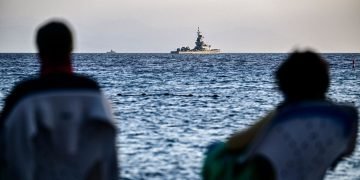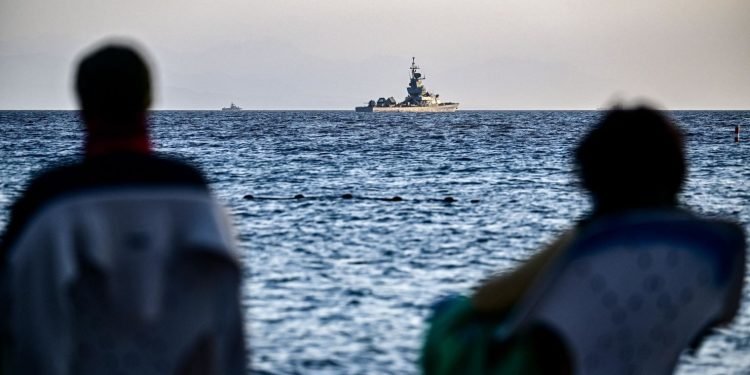The United Nations trade body issued a warning on Thursday, highlighting the disruption of global trade due to a combination of Red Sea attacks, the ongoing conflict in Ukraine, and reduced water levels in the Panama Canal. These factors are contributing to challenges in the smooth flow of international trade and commerce. The maritime incidents, geopolitical tensions, and canal conditions are creating a complex environment that is impacting the efficiency and reliability of global trade networks.
Jan Hoffmann, a trade expert affiliated with the United Nations Conference on Trade and Development (UNCTAD), cautioned that the disruptions in global trade are leading to a notable increase in shipping costs. Additionally, the impacts are extending to energy and food costs, thereby heightening the risks of inflation. The interconnected challenges in various sectors of the economy are contributing to a broader economic impact, affecting both the cost of goods transportation and essential commodities.
The disruptions caused by attacks on ships in the Red Sea by Yemen’s Houthi rebels since November have led significant players in the shipping industry to temporarily suspend the use of Egypt’s Suez Canal. The canal, a crucial waterway connecting the Mediterranean Sea to the Red Sea, serves as a vital route for the transportation of energy and cargo between Asia and Europe. This strategic interruption in maritime activities is compounding the challenges faced by global trade networks.
The Suez Canal, responsible for handling 12% to 15% of global trade in 2023, has witnessed a significant decline in trade volume over the last two months. According to estimates by UNCTAD, the volume going through the waterway has dropped by 42%, underscoring the severe impact of disruptions on a key artery of international commerce.
The Houthi rebels, who are supported by Iran, have attacked ships at least 34 times since November in the canals that lead to the Suez Canal. The Houthis, a Shiite rebel organization that has been fighting with a coalition led by Saudi Arabia to protect the exiled government of Yemen since 2015, are sympathetic to the Palestinian cause. They have made it clear that they plan to keep attacking until the Israel-Hamas crisis is resolved.
The rebels have continued their assault efforts despite military retaliation from the United States and Britain that targeted Houthi sites. Hoffmann, who oversees the trade logistics branch at UNCTAD, a Geneva-based organization, said that these Houthi attacks are taking place at the same time that other vital trade channels are under increased strain. In a virtual news conference with U.N. reporters, Hoffmann communicated this information while highlighting the difficult conditions that face international trade as a result of the continued Houthi attacks and other disruptions on important trade routes.
The geopolitical landscape, marked by the nearly two-year conflict following Russia’s invasion of Ukraine on February 24, 2022, has significantly altered the patterns of oil and grain trade routes. This includes notable changes in routes passing through the Black Sea, reflecting the enduring impact of the conflict and broader geopolitical tensions on global trade dynamics.
Exacerbating challenges for shipping enterprises, Hoffmann noted that an intense drought has led to a substantial decline in water levels within the Panama Canal, reaching historically low levels. This decrease in water levels has significantly constrained the capacity of vessels, both in terms of quantity and size, that can navigate through the canal.
Hoffmann highlighted that the total number of transits through the Panama Canal in December witnessed a notable decline, with a 36% decrease compared to the previous year and a striking 62% reduction compared to two years ago.
Emphasizing the critical role of shipping, Hoffmann pointed out that ships are responsible for transporting approximately 80% of the world’s traded goods. This proportion is even higher for developing nations, underscoring the profound impact of these challenges on global trade and economies, particularly in the context of the vital role played by shipping in facilitating international commerce.
The crisis unfolding in the Red Sea is causing considerable disruptions in the transportation of essential commodities such as grains from Europe, Russia, and Ukraine. This disruption not only results in elevated costs for consumers but also poses substantial threats to global food security, as highlighted by Hoffmann.
The impact is particularly pronounced in regions such as East Africa, South Asia, Southeast Asia, and East Asia, where there is a significant dependence on wheat imports from Europe and the Black Sea area. The disruptions in these crucial trade routes jeopardize the steady and reliable supply of essential foodstuffs to these regions, contributing to an elevated risk to food security in the affected areas.
Preliminary data from 2024, according to Hoffmann, shows that over 300 container ships—or more than 20% of the world’s container capacity—are either researching alternatives to the Suez Canal for their itineraries, or are diverting from it. Many of these ships are opting for the more costly and time-consuming route around Africa’s Cape of Good Hope.
Hoffmann brought up a specific worry concerning ships transporting LNG, stating that they had totally stopped passing through the Suez Canal because of fears of possible attacks.
Hoffmann pointed out a significant rise in the average spot rates for container shipping from Shanghai, which has significant economic ramifications. These rates have increased by 122% since the beginning of December, with other routes seeing even more significant rises. For example, rates to Europe have increased by 256% from Shanghai, yet prices to the U.S. west coast have increased by 162%.
Hoffmann highlights that the overall effect of the current crisis on international maritime trade is shown in the worldwide impact on shipping dynamics, as vessels actively seek out alternate routes and avoid using the Panama Canal and Suez Canal.























